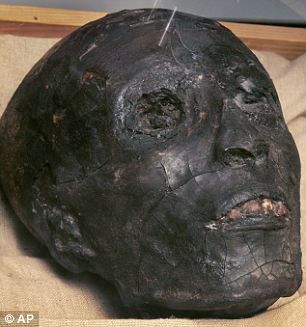
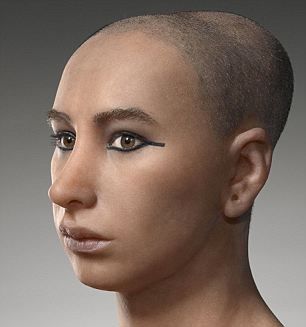
The two faces of the boy king Tutankhamun. His mummified head and a reconstruction of what he would have looked like.
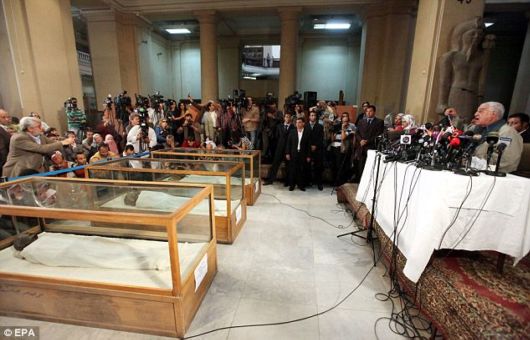
Antiquities expert Dr Zahi Hawass (right) announces today in Cairo’s Egypt Museum that the mummies in front of him have been identified as Tutankhamun’s father, mother and grandmother by using DNA
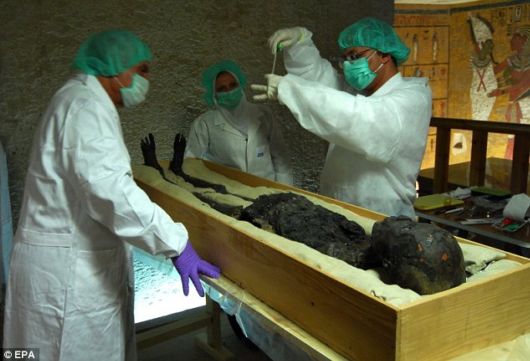
Technicians take DNA samples from the mummy of Boy Pharaoh Tutankhamun in the Valley of the Kings. Tests revealed his parents were siblings.
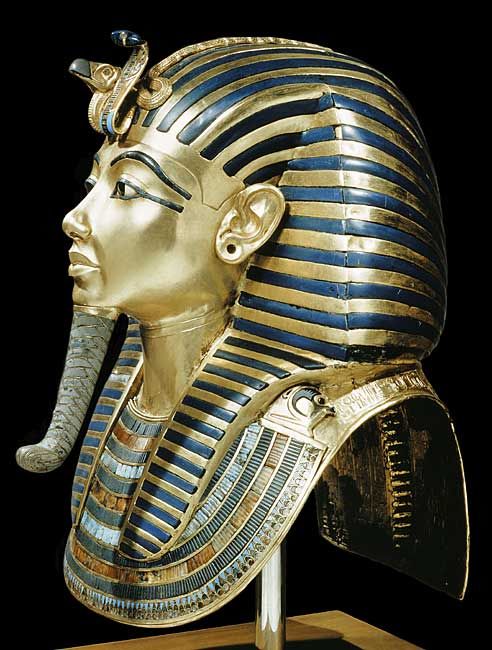
Tutankhamun’s funeral mask in solid gold inlaid with semi-precious stones and glass-paste
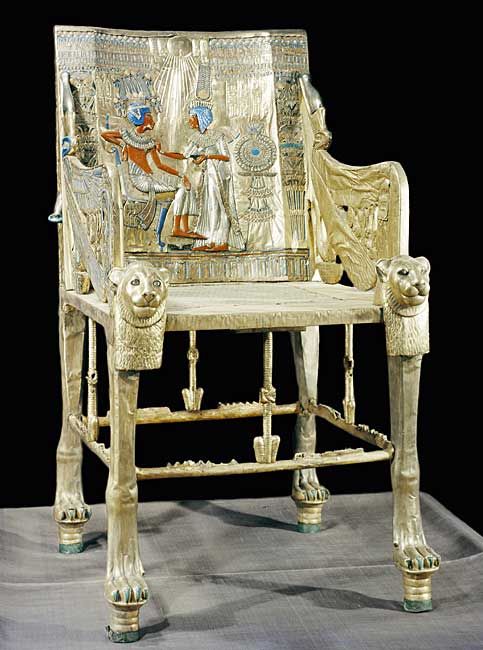
The gilt throne is decorated with a scene showing King Tut and his consort.
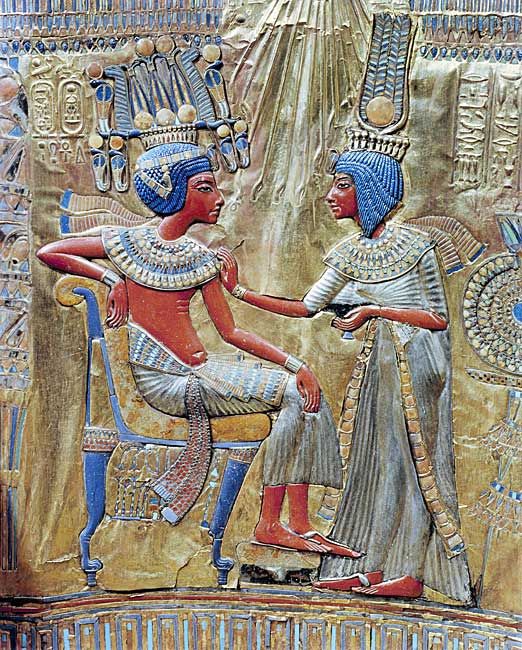
The back of the gold-plated throne, showing queen Ankhesenamun putting the finishing touches to the king’s dressing.
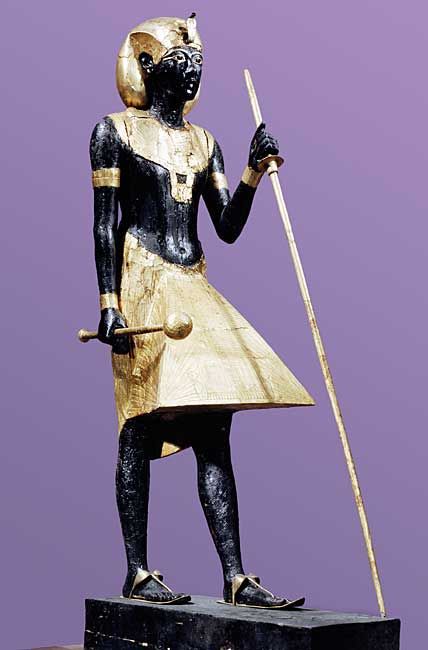
Life size statue of Tutankhamun made from black wood with applied gilded plaster. The statue is holding a cane as King Tut had a bone condition during his life that meant he hobbled.
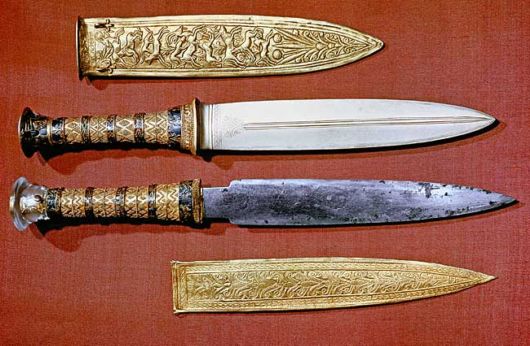
Two of the king’s daggers, one with a blade of gold, the other of iron.
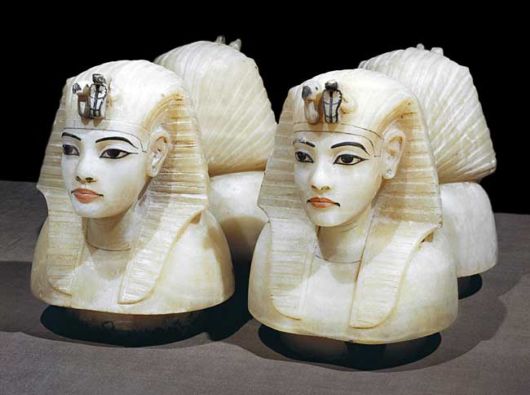
Stopper in the form of the king’s head from one of the four canopic urns.
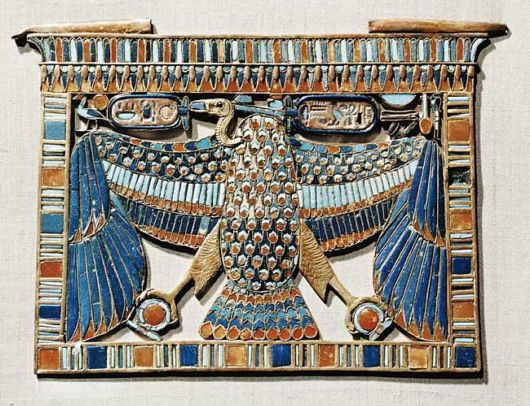
A chest plate decorated with the vulture of Upper Egypt, made of gold cloisonne inlaid with glass paste.
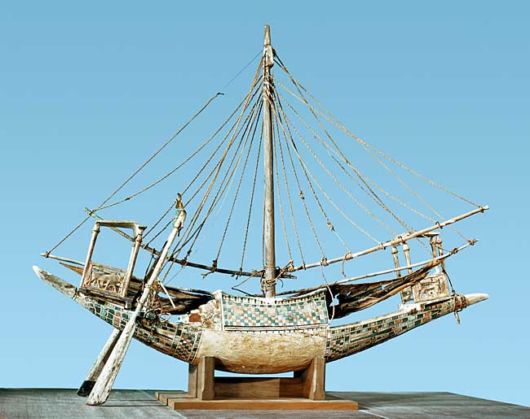
A model of the pharaoh’s boat that he used during his lifetime.
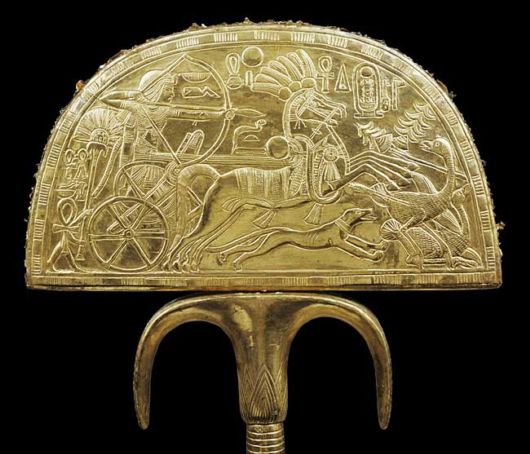
The king’s fly-swatter. The reverse side of the gilt fan depicts the pharaoh on an ostrich hunt.

